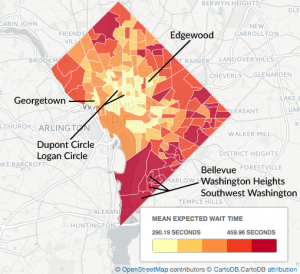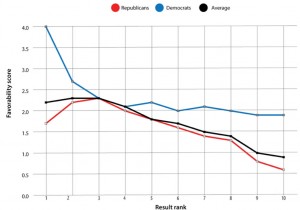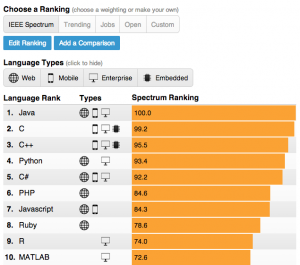WORKSHOP: Algorithmic Accountability and Transparency
WORKSHOP: Algorithmic Accountability and Transparency
Thursday, May 26, 2016
A workshop of the
33rd Human-Computer Interaction Lab Symposium
University of Maryland
Overview and Topics
Algorithms are everywhere in industry and government, making decisions that impact people’s lives through everything from discrimination and censorship to voting and democracy itself. Algorithmic accountability reporting is an emerging set of methods for investigating how algorithms exert influence and power in society. In this workshop we’ll cover strategies, methods, and techniques for pursuing algorithmic accountability using investigation as well as information disclosure and transparency in the user interface.
The workshop will include talks (including plenty of time for questions) from journalists and researchers who are pursuing algorithmic accountability investigations of the Uber dynamic pricing system as well as how search engines like Google moderate access to political information. The workshop will also include design sessions where we brainstorm and then work through detailing an algorithmic accountability project. Participants in this interactive workshop should expect to go home with a set of promising ideas for algorithmic accountability stories.
To Participate:
Come and join us! The workshop is opened to all (space permitting, so plan to register early (mid-May at the latest is best). The registration should open in April.
Organizers
- Nick Diakopoulos, Assistant Professor, Philip Merrill College of Journalism, Computational Journalism Lab
- Jennifer Stark, Research Scientist, Computational Journalism Lab
- Daniel Trielli, Research Assistant, Computational Journalism Lab
Questions: Please contact Nick Diakopoulos (nad@umd.edu)
Agenda
The precise timing is not set yet but it will likely follow this format:
- 08:15am – Symposium Registration, Breakfast
- 09:00am – Symposium Plenary Talks (more information)
- 1:00pm – 1:50pm: An Overview of Algorithmic Accountability & Transparency
- 2:00pm – 2:50pm: Applying Algorithmic Transparency to Interfaces (The Case of Facebook Trends)
- 3:00pm – 3:50pm: Investigating Algorithms: Case Studies on Uber and Google
- 4:00pm – 4:50pm: What’s the Story with Algorithms?: Getting Started with Algorithmic Accountability Reporting
- 05:00pm – Symposium Demos, Posters, Reception
- 06:30pm – Symposium Ends
Event Logistics
- Symposium Registration.
- Accommodations.
- Directions, Maps, and Parking Information.
- All activities will take place in CSIC (Computer Science Instruction Center), near the AV Williams bldg / Computer Science department (also near Route 1).
- Plan enough time for parking.
- Coffee and light breakfast will be available in the morning during the demos.
- Lunch will include some vegetarian offerings.
Related Materials
- N. Diakopoulos. Accountability in Algorithmic Decision Making. Communications of the ACM (CACM). Feb. 2016. [PDF]
- N. Diakopoulos. Algorithmic Accountability: Journalistic Investigation of Computational Power Structures. Digital Journalism. 2015. [PDF]
- Daniel Trielli, Sean Mussenden, and Nicholas Diakopoulos. Why Google Search Results Favor Democrats. Slate. Dec., 2015. [Article]
- Jennifer Stark and Nicholas Diakopoulos. Uber seems to offer better service in areas with more white people. That raises some tough questions. Washington Post. March, 2016. [Article]
Support
Special thanks to the Tow Center for Digital Journalism at Columbia University for supporting the development of this workshop.





